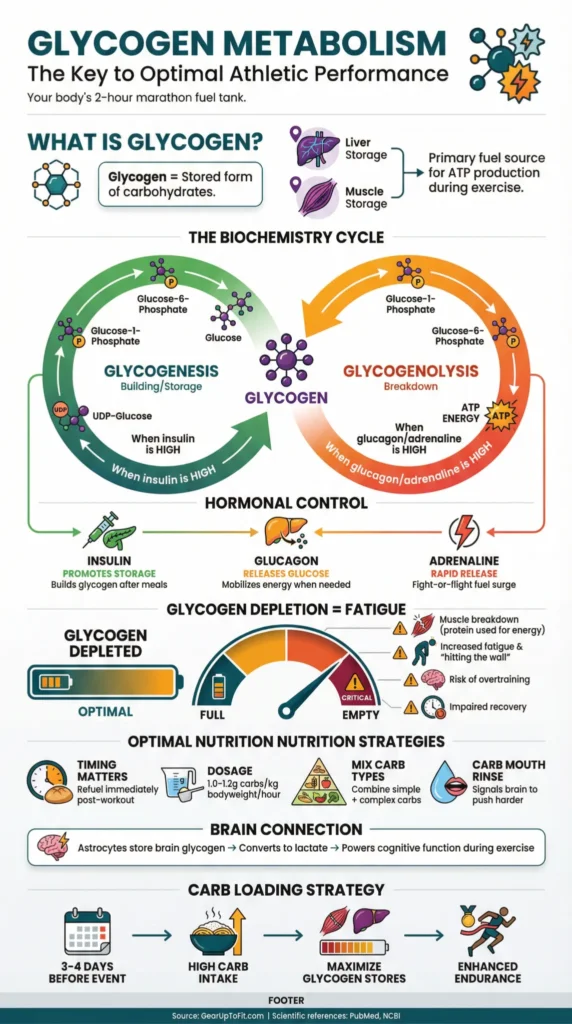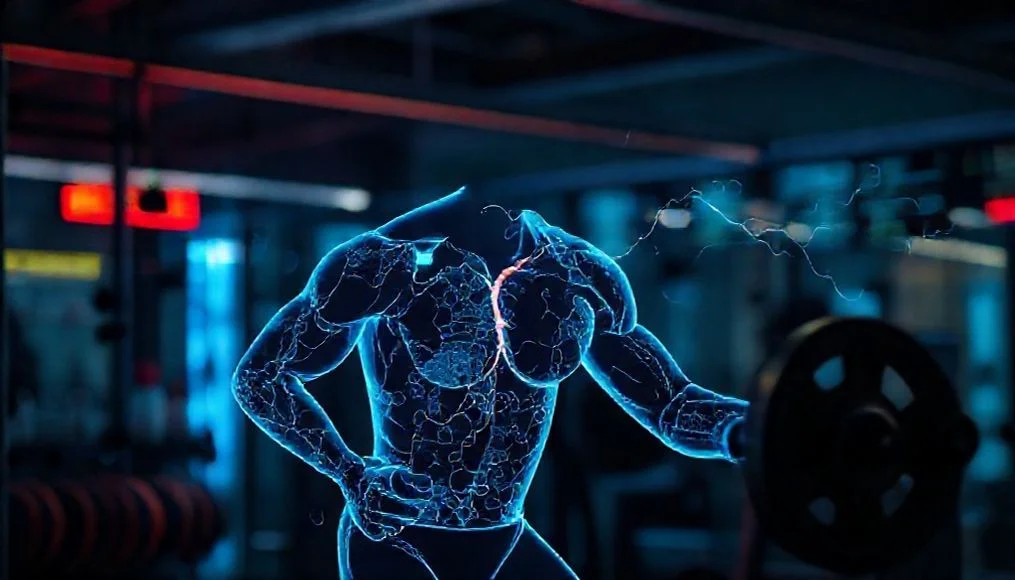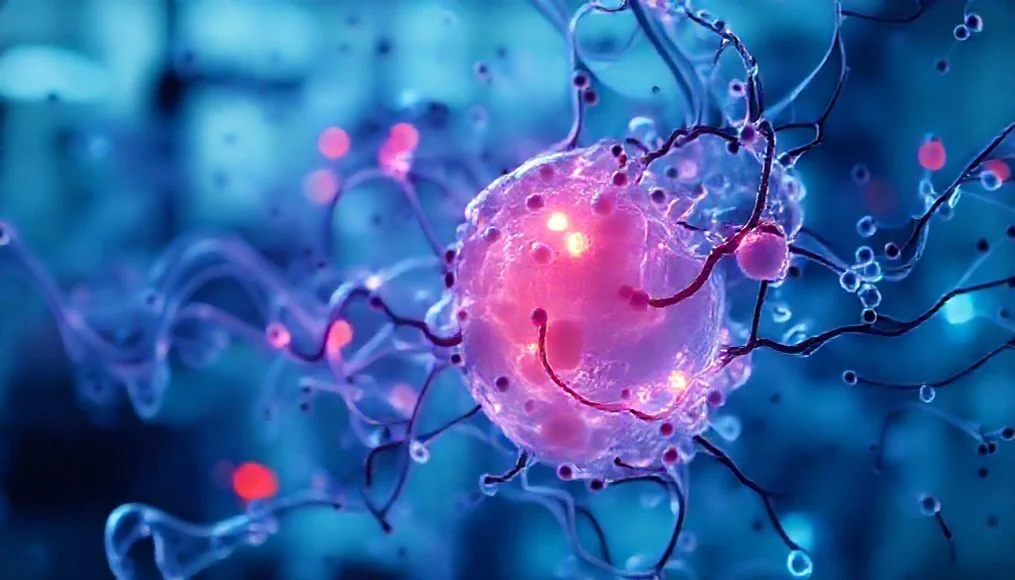Every time you sprint for a mile, lift a heavy weight, or even think a complex thought, your cells burn fuel. That primary fuel is glucose. But your body can’t simply have glucose floating freely in the bloodstream 24/7. It needs a storage system—a strategic energy reserve that can be tapped instantly when demand spikes. That system is glycogen metabolism.
It’s the intricate, hormonally-controlled process of packaging glucose into a compact, branched polymer called glycogen for storage, primarily in your liver and muscles, and then breaking it back down when you need energy. Understanding this isn’t just academic biochemistry; it’s the key to unlocking better endurance, smarter recovery, and stable energy levels throughout your day. From the athlete aiming for a personal best to anyone managing their metabolic health, mastering glycogen metabolism is a foundational piece of the performance puzzle.
400-500g
Total glycogen stored in an average adult body, with ~100g in the liver and ~300-400g in skeletal muscle.
~1600 kcal
Potential energy from full muscle glycogen stores, enough to fuel a 20-mile run for many athletes.
24-48 hrs
Typical time to fully replenish muscle glycogen post-exercise with proper carbohydrate intake.
60-90 min
Exercise duration at 70-80% VO2 max that can deplete most muscle glycogen stores.
The Molecular Architecture of Glycogen

Glycogen isn’t a simple chain of glucose. It’s a highly branched, tree-like structure designed for rapid synthesis and breakdown. Think of it as your body’s most efficient energy warehouse.
Chemical Structure: A Branched Polymer
Glycogen is a polymer of glucose molecules linked primarily by α-1,4-glycosidic bonds, forming long chains. Every 8-12 glucose units, an α-1,6-glycosidic bond creates a branch point. This branching is critical—it massively increases the number of “ends” where enzymes can simultaneously attach or remove glucose molecules, speeding up both storage and release by up to 1000-fold compared to a linear chain.
Glycogenin: The Essential Primer
Glycogen synthesis doesn’t start from scratch. It requires a primer protein called glycogenin. This enzyme catalyzes the attachment of the first glucose molecule to itself (autoglycosylation) and acts as a scaffold. All glycogen molecules are covalently bound to a glycogenin core. Recent 2025 research in Nature Communications highlights that human glycogenins are not just primers but active regulators of glucose homeostasis, linking cellular energy status directly to glycogen structure.
Tissue-Specific Storage: Liver vs. Muscle
Your body allocates glycogen stores strategically. Liver glycogen (about 100g or 5% of liver weight) is a public reservoir. Its primary job is to export glucose to maintain blood sugar levels for the brain and other organs between meals. Muscle glycogen (1-2% of muscle weight, but much more total mass) is a private fuel tank. Muscle cells lack the enzyme glucose-6-phosphatase, so they cannot export glucose; they hoard glycogen exclusively for their own contractile work.
The Two Pathways of Glycogen Metabolism
Glycogen metabolism operates like a revolving door with two distinct traffic flows: synthesis (in) and breakdown (out). They are reciprocally regulated to prevent a futile cycle.
Glycogenesis: The Building Phase
This is the process of converting glucose into glycogen for storage. It’s activated in the fed state, especially after a carbohydrate-rich meal like the perfect post-run recovery snack.
Step-by-Step Process of Glycogen Synthesis
Activation: Glucose is phosphorylated to Glucose-6-Phosphate (G6P) and then isomerized to Glucose-1-Phosphate (G1P).
Commitment: G1P reacts with UTP to form UDP-glucose, the active, high-energy donor molecule for glycogen synthesis.
Initiation & Elongation: Glycogenin primes the chain. Glycogen synthase then catalyzes the transfer of glucose from UDP-glucose to the non-reducing end of the growing chain via α-1,4 linkages.
Branching: The branching enzyme (amylo-(1,4→1,6)-transglycosylase) cleaves a segment of a linear chain (at least 11 glucose long) and reattaches it via an α-1,6 bond to create a new branch.
The entire process is energetically expensive, consuming one ATP and one UTP (equivalent to two ATP) per glucose stored. This investment ensures glycogen is a stable, non-osmotic storage form.
Glycogenolysis: The Breakdown Phase
When your body needs glucose fast—during exercise, stress, or between meals—it triggers glycogenolysis. This pathway is distinct from digestion of dietary starch.
Enzymatic Breakdown of Glycogen
Glycogenolysis is not a simple reversal of synthesis. It uses a different set of enzymes:
- Glycogen Phosphorylase: The workhorse enzyme. It cleaves glucose from the non-reducing ends of glycogen chains using inorganic phosphate (Pi), releasing Glucose-1-Phosphate. This saves an ATP compared to starting with free glucose.
- Debranching Enzyme: A two-function enzyme. Its transferase activity moves a block of 3 glucose residues from a branch to a nearby chain end. Its glucosidase activity then hydrolyzes the remaining α-1,6-linked glucose, releasing free glucose.
In the liver, G1P is converted to G6P and then dephosphorylated by glucose-6-phosphatase to release free glucose into the blood. In muscle, G6P proceeds directly into glycolysis to generate ATP for contraction.
Masterful Regulation: The Hormonal Control Panel
Glycogen metabolism is a masterclass in biological regulation. It’s controlled by a network of hormones and allosteric effectors that ensure the right pathway is active at the right time.
Allosteric Control: The Local Sensors
Enzymes sense the immediate energy needs of the cell.
- Glycogen Phosphorylase: Activated by AMP (a signal of low energy) and inhibited by ATP and Glucose-6-Phosphate (signals of plenty).
- Glycogen Synthase: Activated by Glucose-6-Phosphate. High G6P means the cell has ample fuel, so it’s time to store the excess.
Hormonal Control: The Systemic Command
Hormones override local control to meet whole-body demands.
| Hormone | Signal State | Primary Target | Effect on Metabolism |
|---|---|---|---|
| Insulin | Fed, High Blood Glucose | Liver & Muscle | ↑ Glycogenesis, ↓ Glycogenolysis. Promotes storage. |
| Glucagon | Fasting, Low Blood Glucose | Liver Only | ↑ Glycogenolysis, ↑ Gluconeogenesis. Releases glucose. |
| Epinephrine (Adrenaline) | Stress, Exercise, “Fight or Flight” | Liver & Muscle | ↑ Glycogenolysis in both tissues. Provides rapid energy. |
| Cortisol | Stress, Prolonged Fasting | Liver | ↑ Gluconeogenesis (long-term), Permissive for glucagon/epinephrine action. |
Covalent Modification: The Phosphorylation Switch
Hormones like glucagon and epinephrine work through a cascade that ends with protein phosphorylation. A key player is the enzyme phosphorylase kinase, which activates glycogen phosphorylase. Conversely, insulin promotes dephosphorylation, activating glycogen synthase and inhibiting phosphorylase. This reciprocal control is elegant and absolute.
“The regulation of glycogen metabolism is a paradigm of metabolic control. The same cAMP-mediated phosphorylation event that turns on glycogen breakdown simultaneously turns off glycogen synthesis. It’s a binary switch designed to prevent futile cycling and ensure metabolic efficiency.”
Glycogen Metabolism in Action: From the Gym to the Clinic
This biochemistry comes alive in real-world scenarios, dictating performance limits and revealing disease states.
Fueling Exercise Performance
Muscle glycogen is the premium fuel for moderate to high-intensity exercise. Its depletion correlates directly with fatigue—the phenomenon known as “hitting the wall” or “bonking.”
- Short, High-Intensity: Activities like a 400m sprint or heavy lifting rely almost exclusively on muscle glycogen and phosphocreatine.
- Endurance Exercise: Marathon running or long-distance cycling uses a mix of glycogen and fat. Glycogen depletion after 60-90 minutes is a primary limiter. Strategic carb-loading can increase stored glycogen by 20-40%.
- Intermittent Sports: Soccer, basketball, and HIIT training rely on glycogen for repeated bursts. Recovery between plays relies on glycogen resynthesis.
Glycogen and Metabolic Health
Dysregulated glycogen metabolism is a hallmark of several conditions.
- Type 2 Diabetes: Insulin resistance impairs glycogenesis in liver and muscle, leading to poor glucose disposal after meals and contributing to hyperglycemia. The liver may also overproduce glucose via gluconeogenesis.
- Glycogen Storage Diseases (GSDs): These are rare genetic disorders caused by defects in glycogen metabolic enzymes. For example, GSD I (von Gierke’s) involves a deficiency in glucose-6-phosphatase, causing severe hypoglycemia and glycogen accumulation in the liver.
- Non-Alcoholic Fatty Liver Disease (NAFLD): Impaired glycogen synthesis may shunt excess glucose towards de novo lipogenesis (fat creation) in the liver, contributing to fat accumulation.
The Brain’s Hidden Glycogen Reserve
While the brain constitutes only 2% of body weight, it consumes 20% of the body’s glucose. Astrocytes, the brain’s support cells, store small amounts of glycogen. A 2025 PNAS study revealed this brain glycogen is critical for neuronal glycolytic plasticity, acting as a local buffer during intense synaptic activity or transient drops in blood glucose. It may play a neuroprotective role.
“We are discovering that brain glycogen is not just a passive emergency store. It’s dynamically regulated and essential for cognitive processes, especially under metabolic stress. This has implications for understanding brain fog, mental fatigue during endurance events, and even neurodegenerative diseases.”
Optimizing Your Glycogen Metabolism: Practical Strategies
You can hack your glycogen system for better health and performance. It’s about strategic timing and quality.
Nutrition for Glycogen Synthesis
Carbohydrate type, timing, and companions matter.
| Strategy | Mechanism | Practical Application | Best For |
|---|---|---|---|
| Post-Workout Carb + Protein | Insulin spike enhances glucose uptake; protein aids repair. | Chocolate milk, Greek yogurt with fruit, or a quality protein powder in a smoothie. | All athletes, especially after intense or prolonged sessions. |
| Carbohydrate Periodization | Trains metabolic flexibility; upregulates fat oxidation. | Lower carbs on easy/recovery days; high carbs on hard training/competition days. | Endurance athletes, those managing body composition. |
| Emphasis on Complex Carbs | Provides sustained glucose release, supporting steady glycogen synthesis. | Oats, sweet potatoes, quinoa, and whole-grain bread as staples. | General health, sustained energy, distinguishing good vs. bad calories. |
| Strategic Carb-Loading | Maximizes muscle glycogen stores via supercompensation. | Taper exercise and increase carbs to 8-12g/kg/day for 1-3 days pre-event. | Marathoners, triathletes, any event >90 mins. |
Training Adaptations
Consistent training remodels your metabolism.
- Increased Storage Capacity: Trained muscles can store 20-50% more glycogen than untrained ones due to increased muscle mass and enzymatic adaptations.
- Enhanced Glycolytic Enzymes: Training upregulates glycogen phosphorylase and other glycolytic enzymes, allowing for faster glycogen breakdown and ATP production when needed.
- Improved Fat Oxidation: Aerobic base training increases mitochondrial density and enzymes for fat burning, sparing precious glycogen during long, steady efforts—a concept central to endurance cycling.
FAQs on Glycogen Metabolism
1. What are the 4 main steps of glucose metabolism?
Glucose metabolism involves four interconnected processes: 1) Glycolysis: Breakdown of glucose to pyruvate for immediate ATP. 2) Glycogenesis: Storage of glucose as glycogen. 3) Glycogenolysis: Breakdown of glycogen to glucose-1-phosphate. 4) Gluconeogenesis: Synthesis of new glucose from non-carb precursors like lactate and amino acids. Glycogen metabolism (glycogenesis/glycogenolysis) is the storage and retrieval system within this network.
2. How long does it take to deplete glycogen during exercise?
Depletion time depends on intensity. At maximal effort (e.g., sprinting), glycogen in active muscles can be exhausted in under 2 minutes. At 70-80% of VO2 max (marathon pace), depletion typically occurs between 60 and 90 minutes. At lower intensities (<50% VO2 max), fat is the primary fuel, and glycogen depletion can take many hours.
3. Can you increase your body’s glycogen storage capacity?
Yes, through two main methods: 1) Increase muscle mass: More muscle fibers mean more total storage “tanks.” 2) Endurance training: Adapts muscle fibers to store more glycogen per unit mass. Combined with strategic carb-loading, trained athletes can push total body glycogen to 600-700 grams or more.
4. What’s the difference between glycogen and fat as fuel?
Glycogen provides fast, anaerobic energy but is limited (~1600-2000 kcal stored). Fat provides slow, aerobic energy but is virtually unlimited (even a lean person has 40,000+ kcal). Glycogen is the “high-octane” fuel for intensity; fat is the “diesel” fuel for endurance. Optimizing metabolism to use both efficiently is key, as explored in HIIT training.
5. Does intermittent fasting affect glycogen?
Absolutely. A 12-16 hour fast typically depletes most liver glycogen, shifting the body to fat oxidation and gluconeogenesis. Muscle glycogen is spared unless you exercise. This can improve metabolic flexibility but may impair high-intensity performance if workouts are done in a fasted state without adaptation. Learn more about the nuances in our guide to fasting and coffee.
6. What are symptoms of low glycogen?
Physical: Heavy legs, sudden fatigue (“bonking”), inability to maintain pace, dizziness, brain fog, irritability (“hangry”), and intense carbohydrate cravings. In training, it manifests as hitting a wall during long sessions.
7. Are glycogen storage diseases treatable?
Treatment focuses on managing symptoms and preventing metabolic crises. It often involves frequent, complex carbohydrate feeds (like uncooked cornstarch) to provide a slow, steady glucose release, avoiding long fasts, and carefully monitoring blood glucose. There is no universal cure, but gene therapy research is ongoing.
Conclusion: Your Energy Blueprint
Glycogen metabolism is far more than a textbook cycle—it’s the dynamic energy blueprint that powers your movement and stabilizes your biology. By understanding its pathways and levers, you gain direct influence over your performance, recovery, and metabolic health.
Key Takeaways:
- Glycogen is your body’s rapid-access glucose bank, stored in liver (for blood sugar) and muscle (for work).
- Its branched structure enables lightning-fast storage and release, a masterstroke of biological engineering.
- Insulin builds glycogen stores after eating; glucagon and adrenaline break them down during stress and exercise.
- Muscle glycogen depletion is a primary cause of athletic fatigue, making carb timing and loading critical strategies.
- Dysregulation links to diabetes and other metabolic diseases, highlighting its central role in health.
Your next workout, your next meal, your next day—they are all opportunities to apply this knowledge. Start by evaluating your recovery nutrition or planning your carb intake around a key training session. Track your energy with a reliable tool like the Garmin Forerunner 970 to see the connection between fuel and performance in real-time. Your glycogen is waiting to be optimized.

References & Further Reading
Scientific Literature & Authoritative Sources
- Roach, P.J., et al. (2025). Glycogen metabolism: not just a one-trick pony. Nature Reviews Endocrinology. https://www.nature.com/articles/s41574-025-01152-6
- Zhang, L., et al. (2025). Glycolytic metabolism and biomass production from [study details]. NIH/PubMed. https://pubmed.ncbi.nlm.nih.gov/41071646/
- Hearris, M.A., et al. (2025). Glycogen supercompensation in skeletal muscle after exercise: mechanisms and strategies. Frontiers in Physiology. https://www.frontiersin.org/journals/physiology/articles/10.3389/fphys.2025.1620943/full
- Abstract 1535: Glycogen metabolism is critical for [cancer cell survival]. (2025). American Association for Cancer Research. https://aacrjournals.org/cancerres/article/85/8_Supplement_1/1535/757695/Abstract-1535-Glycogen-metabolism-is-critical-for
- Katz, A. (2025). Glycogen metabolism in humans. PMC/PubMed Central. https://pmc.ncbi.nlm.nih.gov/articles/PMC4802397/
- Liu, Y., et al. (2025). Human glycogenins maintain glucose homeostasis by regulating glycogen structure. Nature Communications. https://www.nature.com/articles/s41467-025-61862-3
- Murray, B., & Rosenbloom, C. (2025). Fundamentals of glycogen metabolism for coaches and athletes. PMC/PubMed Central. https://pmc.ncbi.nlm.nih.gov/articles/PMC6019055/
- Suzuki, A., et al. (2025). Glycogen supports glycolytic plasticity in neurons during network activation. Proceedings of the National Academy of Sciences (PNAS). https://www.pnas.org/doi/10.1073/pnas.2509003122
- Clinical practice guidelines for glycogen storage disease type I. (2025). ScienceDirect. https://www.sciencedirect.com/science/article/pii/S0960896621006878
- Meléndez, R., & Meléndez-Hevia, E. (2024). Glycogen metabolism and structure: A review. ScienceDirect. https://www.sciencedirect.com/science/article/pii/S0144861724008579
